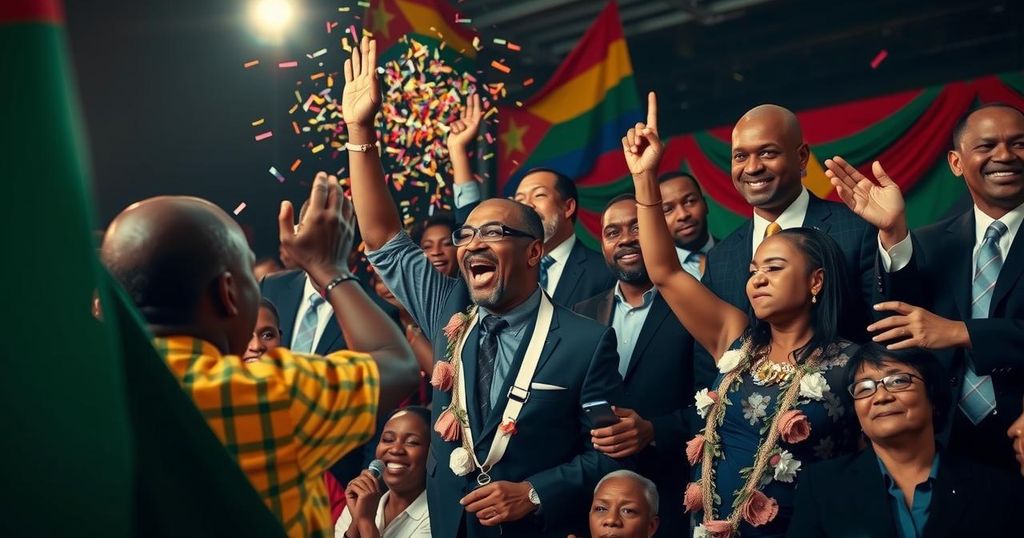Mozambique Ruling Party Declares Winner of Election Amid Violence and Allegations of Fraud

The ruling party in Mozambique, Frelimo, has announced Daniel Chapo as the winner of the presidential election amid violent incidents that resulted in the killings of opposition figures and widespread allegations of electoral rigging. Despite his victory, concerns have arisen regarding the legitimacy of the electoral process. Venâncio Mondlane, a prominent opposition candidate, received support from young voters and has called for peaceful protests following the election’s irregularities.
The presidential election in Mozambique resulted in a decisive victory for the candidate of the ruling party, Frelimo, despite the election being overshadowed by violence and allegations of electoral fraud. Daniel Chapo was declared the winner with an impressive 70.7% of the vote, surpassing the 50% threshold required to eliminate the need for a runoff election. Venâncio Mondlane, who garnered considerable support among the youth, finished second with 20.3% of the votes. Tragically, the election witnessed the assassination of two opposition figures just days before the vote: Elvino Dias, a lawyer preparing to challenge the election results, and Paulo Guambe, an official from the Podemos party, which endorsed Mondlane. These incidents have raised serious concerns regarding the security of opposition members and the integrity of the electoral process. Prior to the elections, accusations were levied against the ruling Frelimo party for allegedly onboarding nearly 900,000 fictitious voters within a total electorate of 17 million. Observers, both local and international, reported discrepancies in the vote counting process, with accusations of ballot stuffing and alterations of results. Amid this backdrop, Mondlane ran as an independent candidate and actively sought to rally support from the youth demographic, which is crucial given that less than 18 years is the average age of the population. In a series of evocative videos shared on Facebook, he called for peaceful demonstrations, emphasizing the urgency for citizens to reclaim their power. Zenaida Machado from Human Rights Watch urged authorities to facilitate the right to peaceful protest and to thoroughly investigate instances of violence and the arbitrary detention of protesters and journalists covering the events. She expressed apprehensions regarding the response of security forces to demonstrators, citing a pattern of concerning conduct in previous years.
Mozambique has a longstanding history of political turbulence, with the ruling Frelimo party having held power for nearly fifty years. The nation faces myriad socio-economic challenges, not least among them being one of the poorest in the world, grappling with the repercussions of undisclosed government debts amounting to $2 billion that were uncovered in 2016. As the country seeks to navigate its path toward political stability and economic recovery, recent election-related violence and claims of systematic electoral fraud have contributed to a pervasive atmosphere of distrust and unrest among the populace. The aftermath of such electoral disputes poses threats not only to the political landscape but also to the fundamental democratic processes within the nation.
In summary, the recent presidential election in Mozambique has significantly underscored the ongoing challenges faced by the nation regarding political integrity and security. Daniel Chapo’s significant victory was marred by the violent deaths of opposition figures and concerns over electoral fraud, raising critical questions about the democratic process in Mozambique. As calls for peaceful protests rise amidst fears of state violence, it is imperative that authorities uphold citizens’ rights to demonstrate and scrutinize the issues that have emerged during this election cycle.
Original Source: www.theguardian.com








